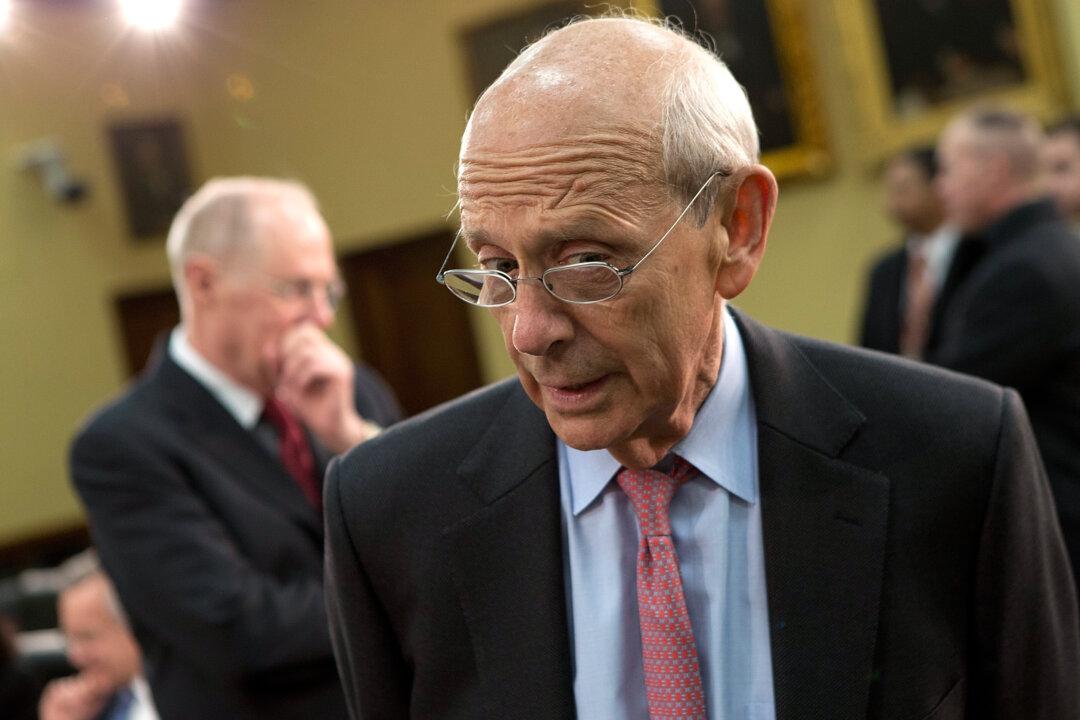Justice Stephen Breyer, who at 82 is the oldest member of the U.S. Supreme Court, said in an interview with Slate published on Tuesday that while he intends to retire “eventually,” he has no immediate plans to do so.
Breyer remarked on his eventual retirement while responding to a question about whether he supports term limits for Supreme Court justices, an issue that has become a political hot potato amid liberal frustration with the high court’s conservative tilt under President Donald Trump’s tenure.





